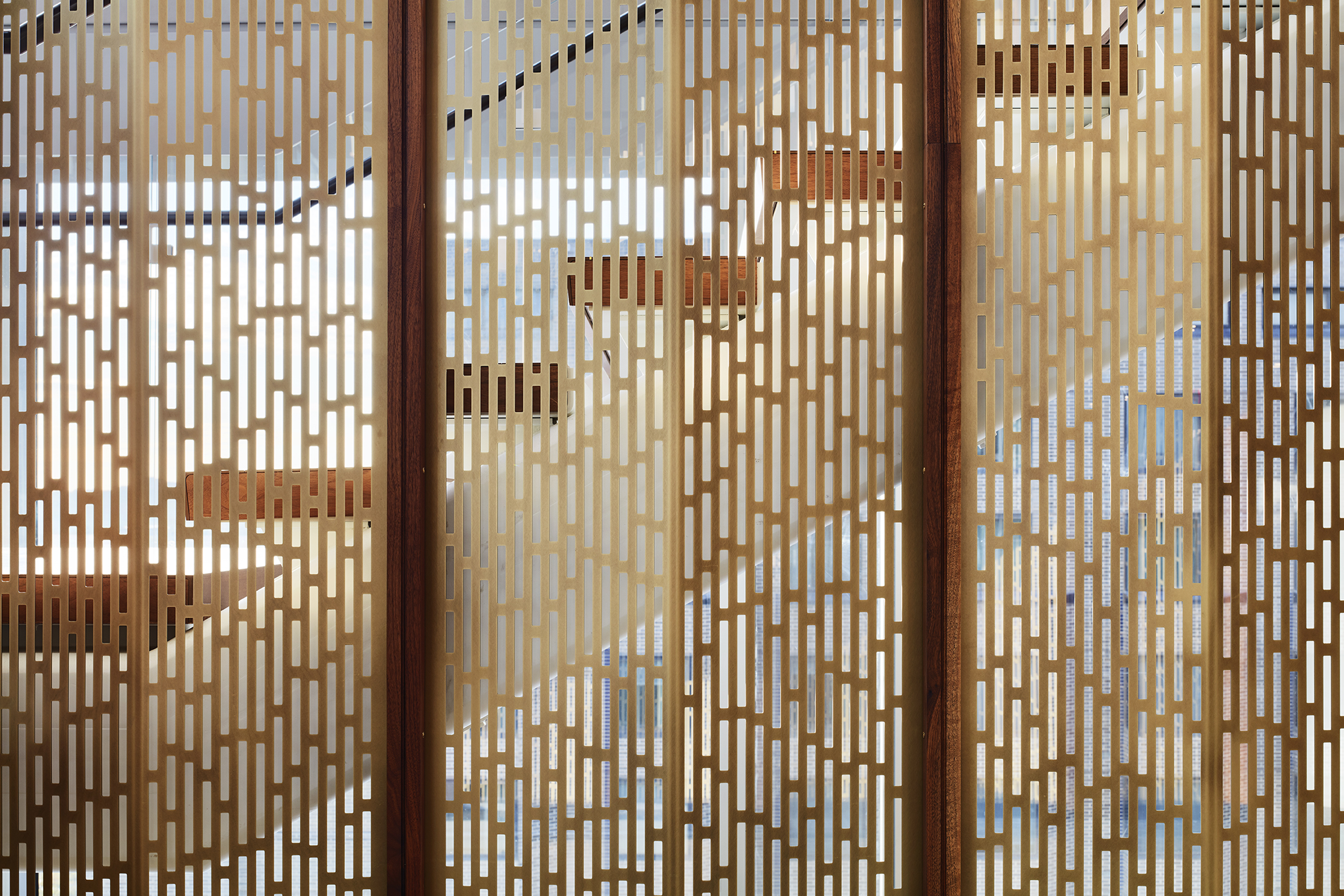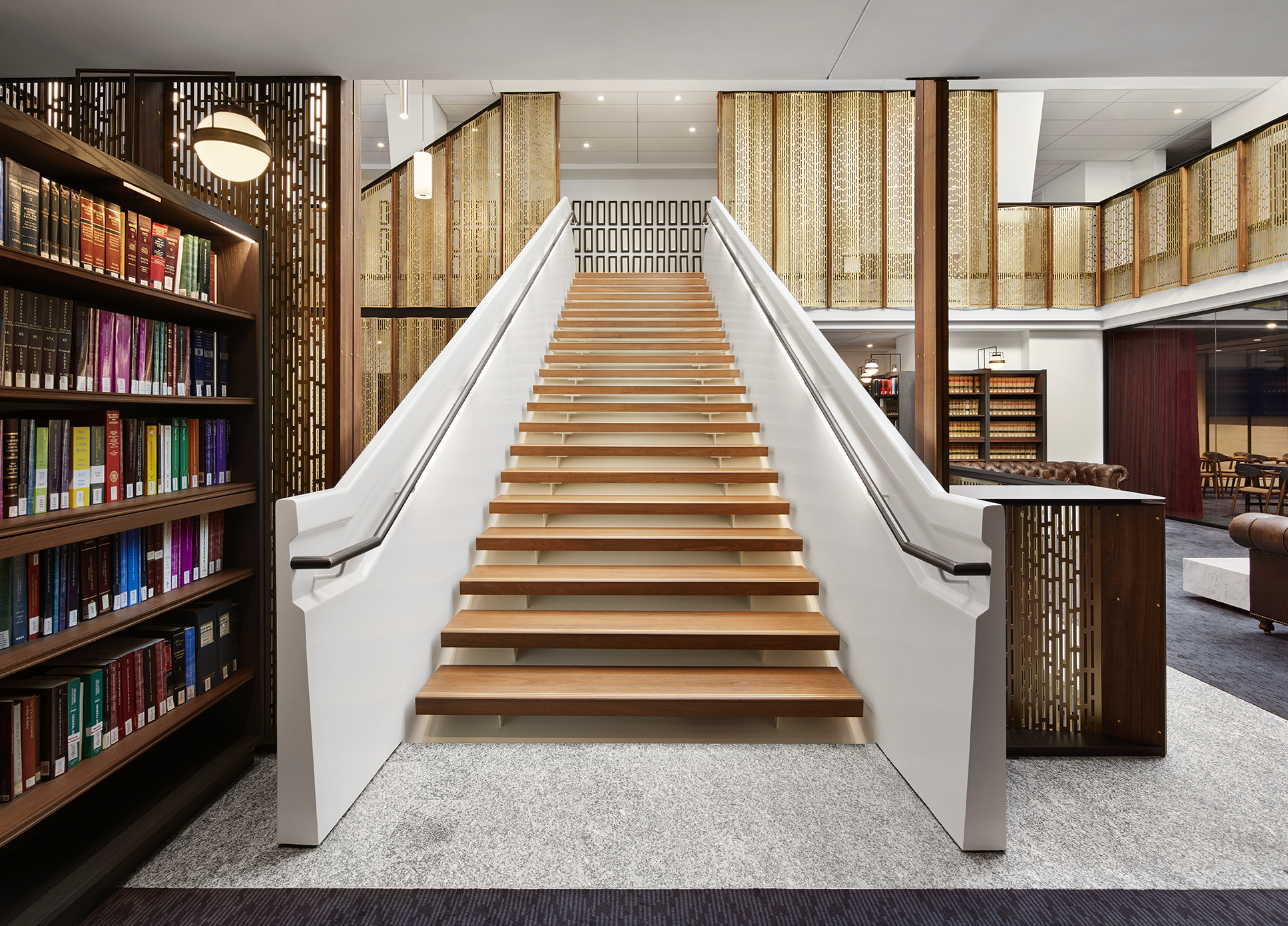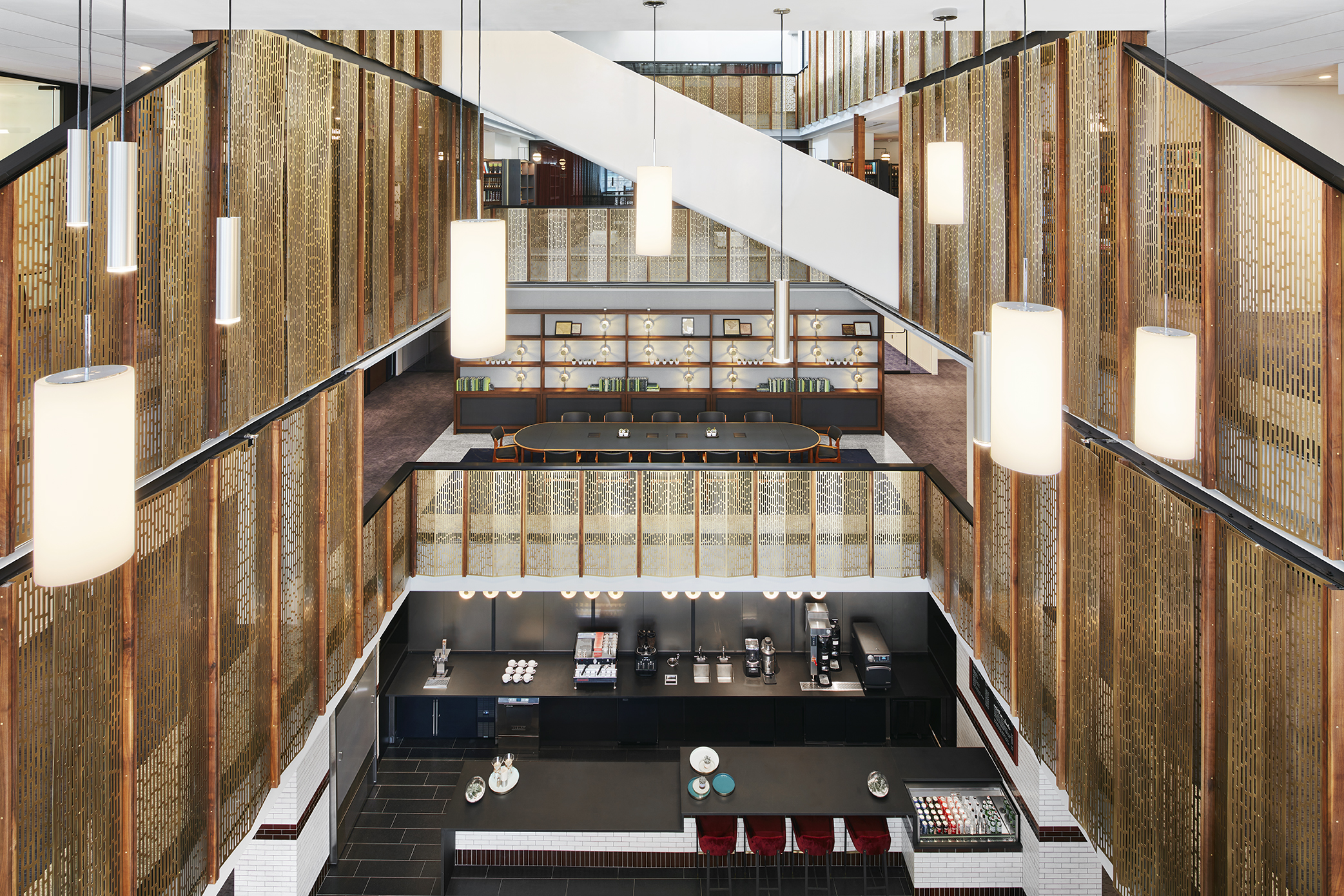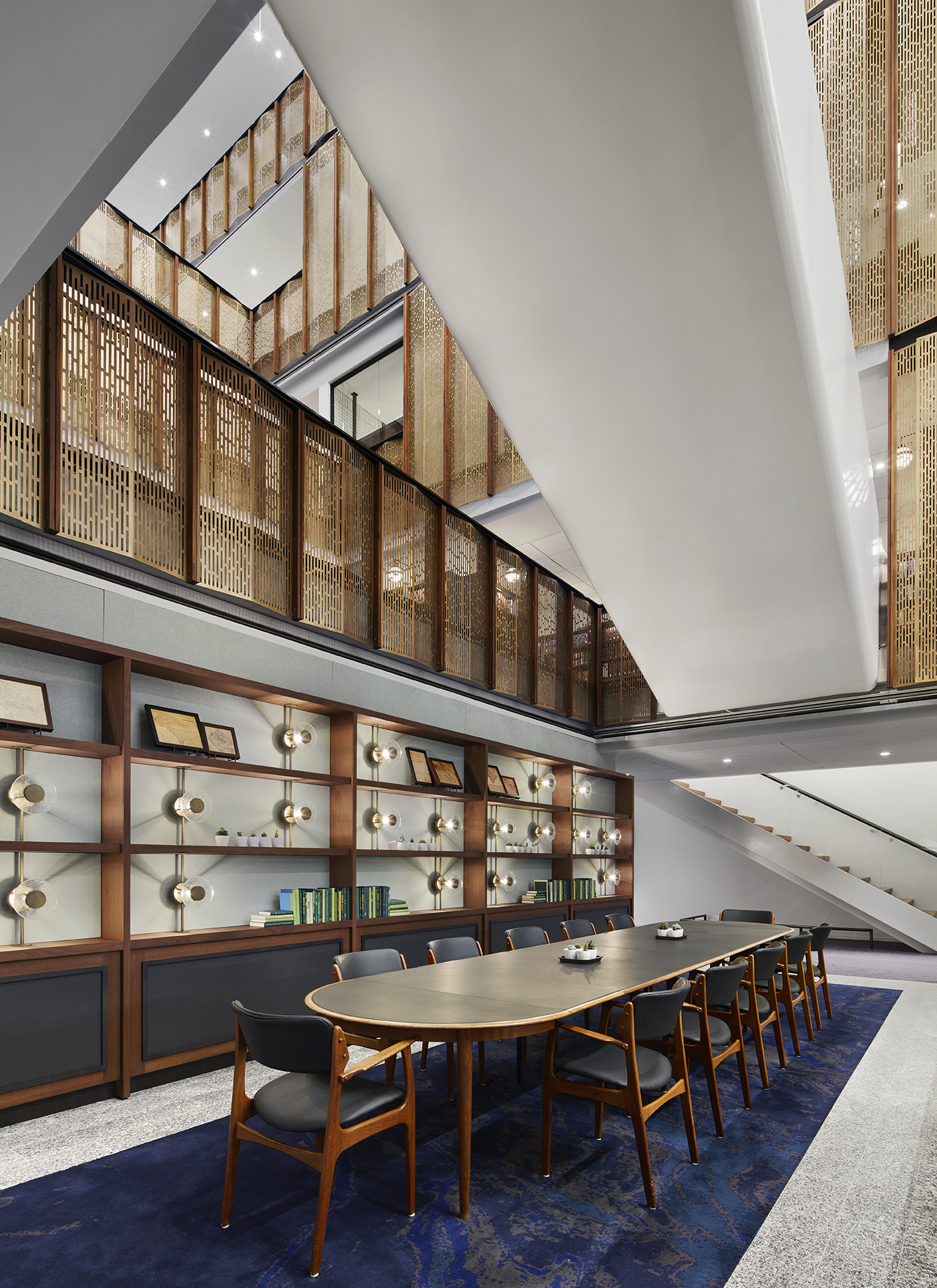After two decades in the same space, a Washington, D.C., law office began contemplating a change. A new office building by the late Helmut Jahn rising on Pennsylvania Avenue presented an enticing alternative. The firm contracted New York’s SHoP Architects for early programming and test fits, and when 184,000 square feet across eight floors of Jahn’s building were ready, the firm was ready for them.

“Their previous office relied on central elevators to navigate around,” said SHoP cofounder Gregg Pasquarelli. “This was isolating and did not promote the cross-pollination of ideas.” He and his team flipped the script: the elevator bank would be pushed off-center to make way for a full-height, top-lit atrium. But because the sixth-floor lease did not have street access (reception is on the top level, with the circulation flowing downward), the architects decided to angle the atrium void so that it progressively stepped back from the perimeter to the middle of the floor plate. “It is a diagonal cut to create better cross-section views to all the floors,” Pasquarelli said. “It also connects the sky to the street.”
Crisscrossed by staircases and lined on all sides with metal screens, this urban aerie offers a grandeur atypical for D.C. offices, which tend to be squat and horizontally oriented, owing to the city’s infamous height limits. The open space also affords a larger-than-usual volume of airflow throughout, a welcome development amid the COVID pandemic.

The most striking aspect of the interiors is the all-over bronze elements lining the sides of what SHoP nicknamed the Sleeve. Developed by Canadian fabrication company Eventscape, the Muntz metal screens are perforated, leading to all sorts of felicitous daylighting effects. Varying in height, the panels are set within steel frames, whose supports are concealed by walnut caps that complement the ubiquitous coppery hue.
Separating the Sleeve and the glass-fronted private offices and dozens of open-benching workstations is a collaborative zone of communal tables and lounge spaces. “This is a departure from the traditional law office, where workspaces are typically focused, individual spaces,” said Pasquarelli. Other departures from the norm are a game room and large coffee bar, though the de rigueur resource library is suitably august.

As is the “court room,” whose whitewashed oak and brass surrounds re-create the interior of the nearby Supreme Court, down to the coffered ceiling. “We wanted to make the space feel well-appointed,” Pasquarelli explained. (SHoP shares design credit with K&CO and Pliskin Architecture.)
When it comes to actual D.C. landmarks, one need only walk out on the terrace to get their fill. But even staffers zipping up and down the stairs to a meeting or for a coffee break can catch glimpses through the generous atrium windows, said Pasquarelli. “They were carefully configured to optimize the views of the Washington Monument.”
Header image: The architects pushed the elevator core off axis to make room for the Sleeve. Use of the stairs, which link collaborative spaces to glass-encased conference rooms and offices, has “been beyond our optimistic projections,” said Pasquarelli. (An elevator bank does figure into the plan for those who cannot or don’t want to mount the stairs.) (David Mitchell)
